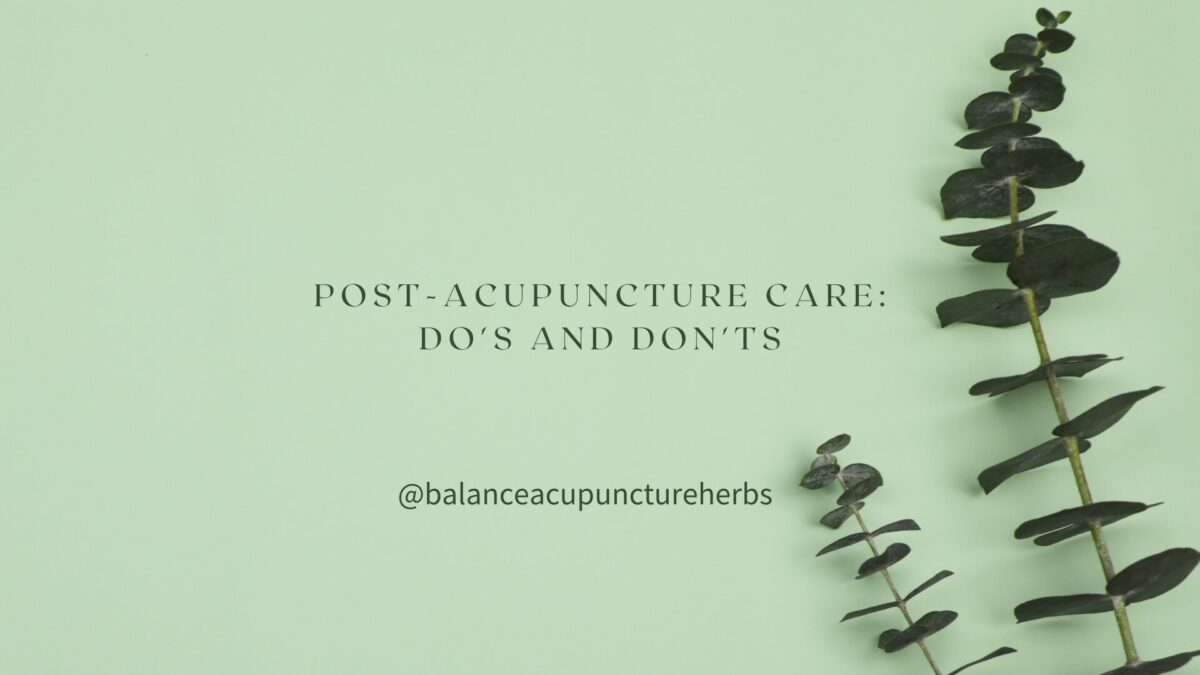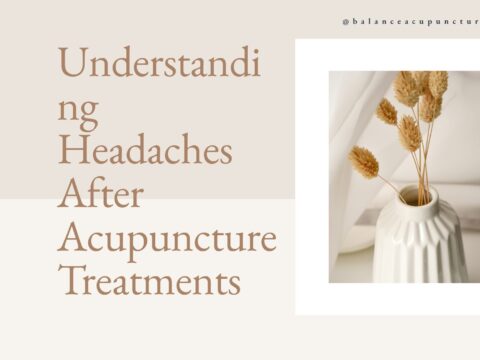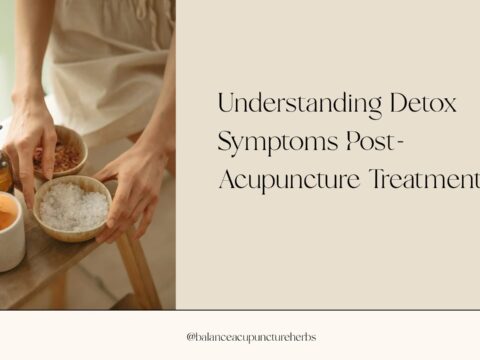
What to Wear to Acupuncture
October 15, 2024
Dry Needling vs Acupuncture: Key Differences Explained
October 19, 2024|
Getting your Trinity Audio player ready...
|
Post-Acupuncture Care: Do’s and Don’ts
Importance of Aftercare
Why Post-Acupuncture Care Matters
Post-acupuncture care is essential for maximizing the benefits of your treatment and ensuring a smooth recovery process. After your session, you might feel very relaxed and more sensitive. It’s important to take care of this feeling.
Common Reactions After Acupuncture
After an acupuncture session, it is common to experience a range of sensations, including mild soreness, fatigue, or even emotional release. These reactions are typically temporary and can be viewed as signs that your body is responding to the treatment.
It is important to listen to your body during this time; if you feel tired, allow yourself to rest, and if you experience any discomfort, consider applying a warm compress to the affected areas. Understanding these common reactions can help you navigate your post-acupuncture experience with greater ease and confidence, ensuring that you continue to reap the benefits of your treatment.
Do’s After Acupuncture Treatment
Stay Hydrated
To support your recovery, it is vital to stay hydrated after your acupuncture treatment. Drinking plenty of water helps flush out toxins that may have been released during the session and aids in maintaining optimal circulation. Herbal teas can also be beneficial, as they provide additional nutrients and promote relaxation.
Aim to avoid sugary or caffeinated beverages, as these can counteract the calming effects of acupuncture. By prioritizing hydration, you not only enhance your body’s healing process but also contribute to your overall well-being.
Rest and Relax
After your acupuncture treatment, it is important to prioritize rest and relaxation to allow your body to fully absorb the benefits of the session. This means taking a break from your usual routine and giving yourself permission to unwind.
Consider engaging in calming activities such as reading, listening to soothing music, or taking a warm bath. Creating a peaceful environment can further enhance your recovery, so dim the lights, eliminate distractions, and focus on nurturing your mind and body. By allowing yourself this time to relax, you will not only feel rejuvenated but also support the healing process initiated by the acupuncture treatment.
Gentle Movement and Stretching
Engaging in gentle movement and stretching after your acupuncture session can significantly enhance your recovery. Light activities, such as walking or simple stretches, help to promote circulation and prevent stiffness, allowing your body to integrate the benefits of the treatment more effectively.
It is essential to listen to your body during this time; opt for movements that feel comfortable and avoid any strenuous exercises that could lead to discomfort. Sorting mindful stretching can also help maintain the relaxation achieved during your session, ensuring that you continue to feel balanced and rejuvenated as you transition back into your daily routine.
Maintain a Healthy Diet
Eating a balanced diet rich in whole foods is crucial for supporting your body’s healing process after acupuncture. Focus on incorporating plenty of fruits, vegetables, lean proteins, and whole grains into your meals, as these nutrients can help replenish your energy levels and promote overall wellness.
Additionally, consider including anti-inflammatory foods, such as fatty fish, nuts, and leafy greens, which can further enhance your recovery. Avoid heavy, processed, or overly spicy foods that may disrupt your digestive system or counteract the calming effects of the treatment. By maintaining a healthy diet, you will not only aid your body’s recovery but also optimize the long-term benefits of your acupuncture sessions.
What Not to Do After Acupuncture Treatment
Avoid Strenuous Activities
It is essential to avoid strenuous activities immediately after your acupuncture treatment, as engaging in high-intensity workouts or physically demanding tasks can disrupt the healing process initiated during your session.
Your body needs time to adjust and integrate the benefits of the treatment, and pushing yourself too hard can lead to fatigue or soreness. Instead, opt for low-impact activities that promote relaxation and gentle movement, such as leisurely walks or restorative yoga. By giving your body the time it needs to recover, you will enhance the overall effectiveness of your acupuncture experience and support your long-term wellness journey.
Don’t Skip Meals
It is important to avoid skipping meals after your acupuncture treatment, as proper nutrition plays a vital role in your recovery. Eating regular, balanced meals helps to stabilize your energy levels and supports your body’s healing processes.
Aim to consume nutrient-dense foods that provide essential vitamins and minerals, which can enhance your overall well-being.
If you experience a hunger pang, opt for light, easily digestible snacks such as fruits, nuts, or yogurt.
By maintaining a consistent eating schedule, you will not only aid your recovery but also ensure that your body has the necessary fuel to fully benefit from the acupuncture session.
Steer Clear of Alcohol and Caffeine
It is advisable to steer clear of alcohol and caffeine after your acupuncture treatment, as both substances can interfere with the calming effects of the session.
Alcohol can lead to dehydration and may disrupt the body’s natural healing processes, while caffeine can increase anxiety and tension, counteracting the relaxation achieved during your treatment.
Instead, focus on nourishing your body with hydrating fluids and herbal teas that promote tranquility. By avoiding these stimulants, you allow your body to maintain the balance and serenity fostered by acupuncture, ultimately enhancing your recovery and overall well-being.
Limit Exposure to Cold Environments
It is important to limit exposure to cold environments after your acupuncture treatment, as sudden temperature changes can disrupt the flow of energy and potentially negate the benefits of the session. Cold air or water can cause muscles to tense up, which may lead to discomfort or stiffness in areas that were treated.
To support your recovery, try to stay in a warm, comfortable environment and dress in layers to maintain your body heat. If you need to go outside, consider wearing a scarf or hat to protect yourself from the cold. By being mindful of your surroundings and keeping warm, you can help ensure that your body continues to relax and heal effectively after your acupuncture experience.
Tips for Effective Acupuncture Aftercare
Communicate with Your Practitioner
It is crucial to communicate openly with your acupuncture practitioner about your experiences and any reactions you may have after treatment. Sharing details about how you feel, including any discomfort or unexpected sensations, can help your practitioner tailor future sessions to better meet your needs.
Additionally, they may provide personalized advice on aftercare practices that can enhance your recovery and overall experience. This ongoing dialogue not only fosters a stronger therapeutic relationship but also empowers you to take an active role in your healing journey, ensuring that you receive the most benefit from your acupuncture treatments.
Follow-Up Appointments
Scheduling follow-up appointments is an essential aspect of post-acupuncture care, as it allows for continuous assessment of your progress and adjustments to your treatment plan. Regular visits can help maintain the benefits achieved during your initial sessions and address any new concerns that may arise.
Your practitioner can monitor your response to treatment, ensuring that you are on the right path to achieving your health goals. Additionally, these appointments provide an opportunity to discuss any lifestyle changes or challenges you may be facing, allowing for a more personalized approach to your ongoing care. By committing to follow-up appointments, you reinforce the importance of your healing journey and enhance the overall effectiveness of your acupuncture experience.
Incorporating Holistic Practices
Incorporating holistic practices into your post-acupuncture care can significantly enhance your overall well-being and support the healing process. Consider integrating complementary therapies such as herbal medicine, aroma therapy, or mindfulness techniques into your routine.
These practices can help to further balance your energy, reduce stress, and promote relaxation, creating a synergistic effect with your acupuncture treatments. Additionally, exploring activities like tai chi or qigong can improve your physical and mental health by fostering a deeper connection between your mind and body. By embracing a holistic approach, you not only optimize the benefits of acupuncture but also cultivate a more profound sense of wellness in your daily life.
Encouragement for Ongoing Care
What to do after acupuncture is vital for maximizing the benefits of your treatment and fostering long-term wellness. By following the do’s and don’ts outlined in this guide, you can create a supportive environment for your body to heal and thrive.
Remember that each individual’s experience with acupuncture is unique, and it is essential to listen to your body and adjust your aftercare practices accordingly. Embrace the journey of healing and self-discovery that acupuncture offers, and remain committed to nurturing your well-being through consistent aftercare and holistic practices.
Read More:
How to Prepare for Acupuncture
Symptoms worsened during treatment?
Dressing Right: What to Wear to Acupuncture
[wpseo_address show_state=”1″ show_country=”1″ show_phone=”1″ show_phone_2=”0″ show_fax=”0″ show_email=”0″ show_logo=”0″]
[wpseo_map max_number=”undefined” width=”400″ height=”300″ zoom=”-1″ map_style=”roadmap” scrollable=”1″ draggable=”1″ show_route=”0″ show_state=”0″ show_phone=”1″ show_phone_2=”0″ show_fax=”0″]




